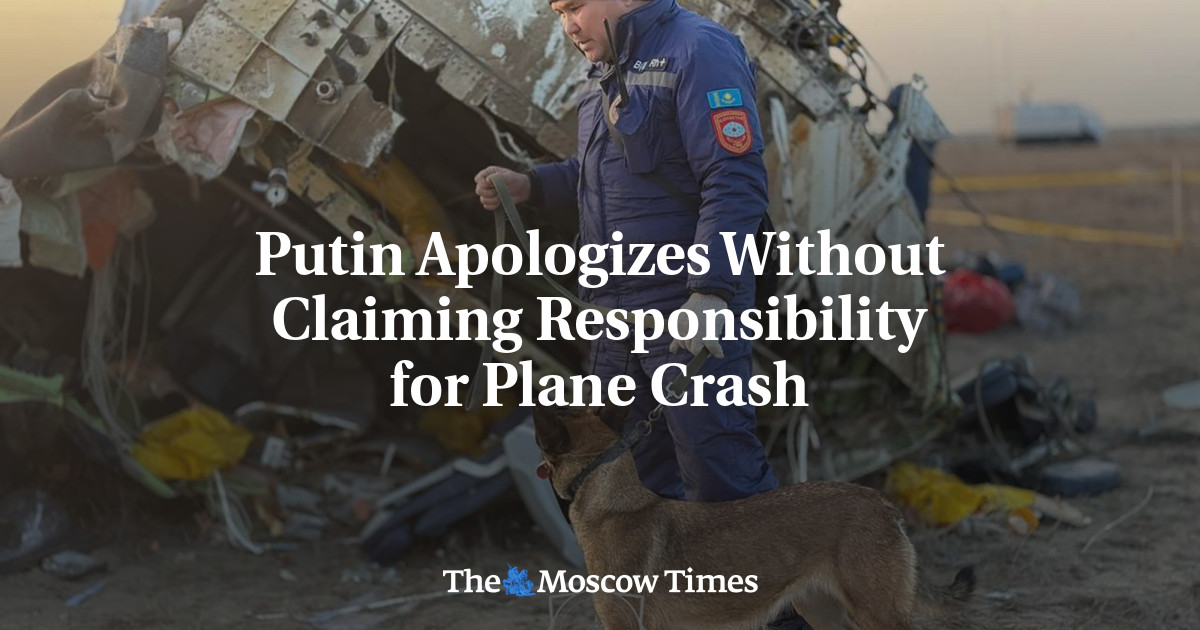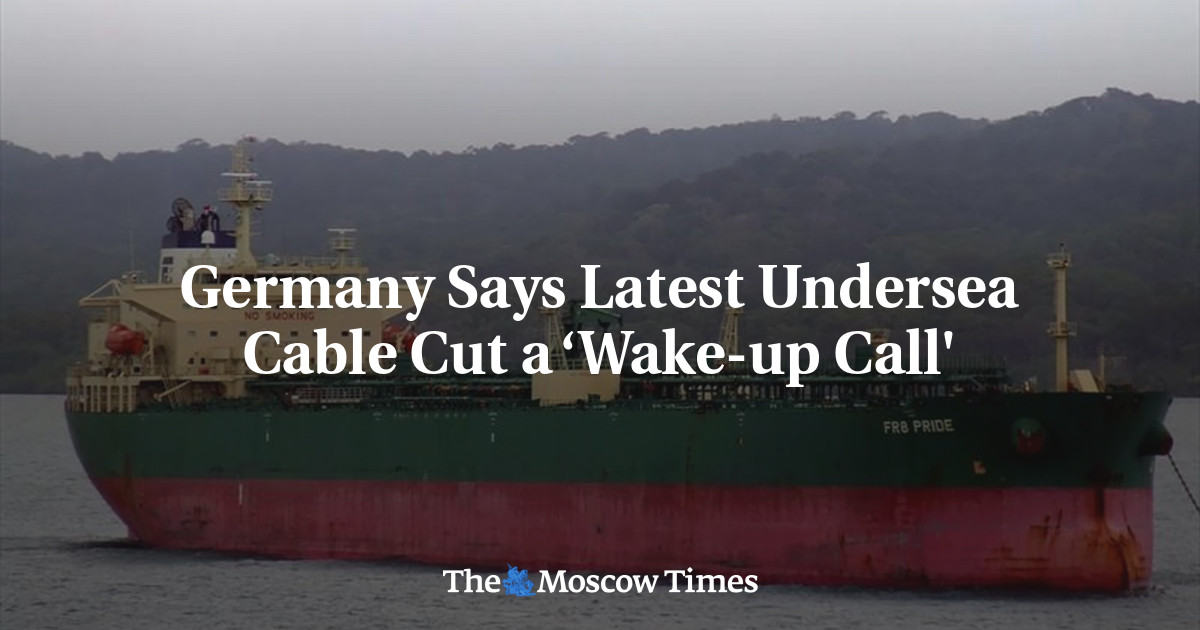Over two years into Russia’s invasion of Ukraine, the share of Russians who favor peace talks to end the war has reached an all-time high of 58%.
This is one of the key findings from the latest survey by the Levada Center, Russia’s last major independent pollster, conducted at the end of June.
Levada Director Denis Volkov attributes this and other shifts in public opinion to a change in official rhetoric — particularly from President Vladimir Putin.
“In recent weeks, he has talked more often about peaceful negotiations: that we [Russians] are interested, that Russia is interested,” Volkov told The Moscow Times in an interview.
The latest polling numbers appear to break a previous months-long trend in which support for peace talks had been waning.
“The decrease in supporters of negotiations was influenced by Putin's election campaign, during which he began to actively raise this topic, emphasizing that we must stand our ground, that we must not yield, and so on,” Volkov explained.
Support for continuing the war remains notably high in Moscow, at 56%, despite the capital’s traditionally liberal leanings, the poll says.
“Overall, I would explain these figures by the fact that many liberal-minded people have left Moscow … [and] they no longer set the climate of the city as they did before,” Volkov said.
“On the other hand, Moscow is a very ideologically charged city, a city of bureaucrats to a large extent,” Volkov continued. “Importantly, Moscow is not suffering like Belgorod or other border cities. People can live normal lives there.”
While a majority of respondents said they favor peace as soon as possible, only 17% believe Russia should make significant concessions to reach an agreement with Kyiv and its Western allies, a previous survey shows.
“This is a fairly stable group, primarily those who do not approve of Russia's actions in Ukraine,” Volkov said.
Most Russians, however, are against returning occupied territories to Kyiv (73-74%) and are even more resistant to allowing Ukraine to join NATO (83%).
The latest Levada poll also reveals that about one-third of Russians view the use of nuclear arms as an acceptable solution — a perspective Volkov said is linked to frequent discussions of using nuclear weapons in the media and by officials.
“Discussing this topic in the public space gives an impression that it’s possible,” Volkov said. “The longer this is discussed and the more arguments are presented at the highest level, the more acceptable it might become.”
Nonetheless, the majority of Russians (52%) find the use of nuclear weapons unacceptable.
Who supports the offensive in Ukraine?
Around 77% of Russians support the Kremlin’s “special military operation,” Levada’s findings indicate, a figure that has remained stable throughout the conflict and aligns closely with support for Putin’s regime.
Respondents often frame their opinions using an “us versus them” perspective, Volkov said.
“When we ask additional questions about why they support it, the main response is, 'Who else would we support? We support our own, not the other side.' People say, 'These are our boys, our soldiers, our people, we support them’,” he explained.
“Those who don't support it are more inclined to believe that it’s Putin’s regime at fault, and they see Ukraine and the West as being on the right side of history. They identify more with and have a favorable view of the West, while the majority believe that Russia is in the right and the West is not,” he added.
A significant portion of respondents (about 30%) express weak support for the war, citing various reservations. Almost 40% say they would not have started the war if they could go back to February 2022.
“They say that war is bad, it would have been better not to start it and it should end quickly, and so on,” Volkov said. “But at the same time, many who support negotiations believe it’s not their place to decide. … They think, ‘Putin started it, so let him end it.’ They say, ‘The authorities know better, we are just small people’.”
Approximately 65% of respondents blame the West and NATO for the destruction and death in Ukraine, a figure that has risen by almost 10 percentage points over the past year.
Support for the regime
Volkov attributes broad support for the regime and the invasion of Ukraine to several factors, foremost among them Russia's ability to maintain economic stability despite the war and Western sanctions.
“The macroeconomic situation is not just stable — it is perceived by the majority of the population, except for the upper middle class in the largest cities, as improving,” Volkov said.
Russia’s working class is enjoying a steady rise in salaries thanks to increased government spending on the war and a labor shortage.
Another key factor is the Kremlin’s success in insulating much of the population from the war's impacts.
As Volkov noted, public mood dipped in the fall of 2022 when the Kremlin launched its “partial” mobilization of 300,000 reservists for the war. Since then, however, the military has largely relied on voluntary conscription to refresh its ranks in Ukraine, leaving ordinary Russians largely untouched.
“The non-participation of the majority [in the war] washed away all the main fears and complaints about the government, so [approval] rates remain high,” Volkov explained.
“The majority is not so emotionally invested [in the war], they don’t have family members [at the front], they don’t live on the border. Yes, there are concerns and fears, but overall, life goes on as it did before — and even better, according to the common people’s perception of the economic situation,” he said.
The third factor is society's consolidation around patriotism, evidenced by the 48% of respondents who say they feel “pride for the country” regarding the conflict in Ukraine.
“So it does in Ukraine: Zelensky’s ratings at the very beginning were higher than Putin’s with 90%,” Volkov explained. “But in Ukraine, they started going down due to the difficult economic situation, while that is not happening in Russia.”
Are polls reliable during war?
Despite widespread repression and wartime censorship, Russian citizens still participate in polls like they did pre-war, Volkov said. He believes repressions do not undermine these polls' results.
“We are often criticized because in Russian conditions, ‘surveys do not show what people actually think,’ but the thing is, most of the time there is no such thing as ‘actually’,” he said.
According to Volkov, many people lack a clearly formulated opinion on many political issues and thus rely heavily on the mainstream media narrative, which is tightly controlled by the government.
“In Russia, this domination is guaranteed by control of television, which remains the main source of information, the shutdown of some non-government websites and the enforcement of the foreign agent law, which makes life for critical journalists much harder,” he explained.
 (1).png)
 5 months ago
45
5 months ago
45













